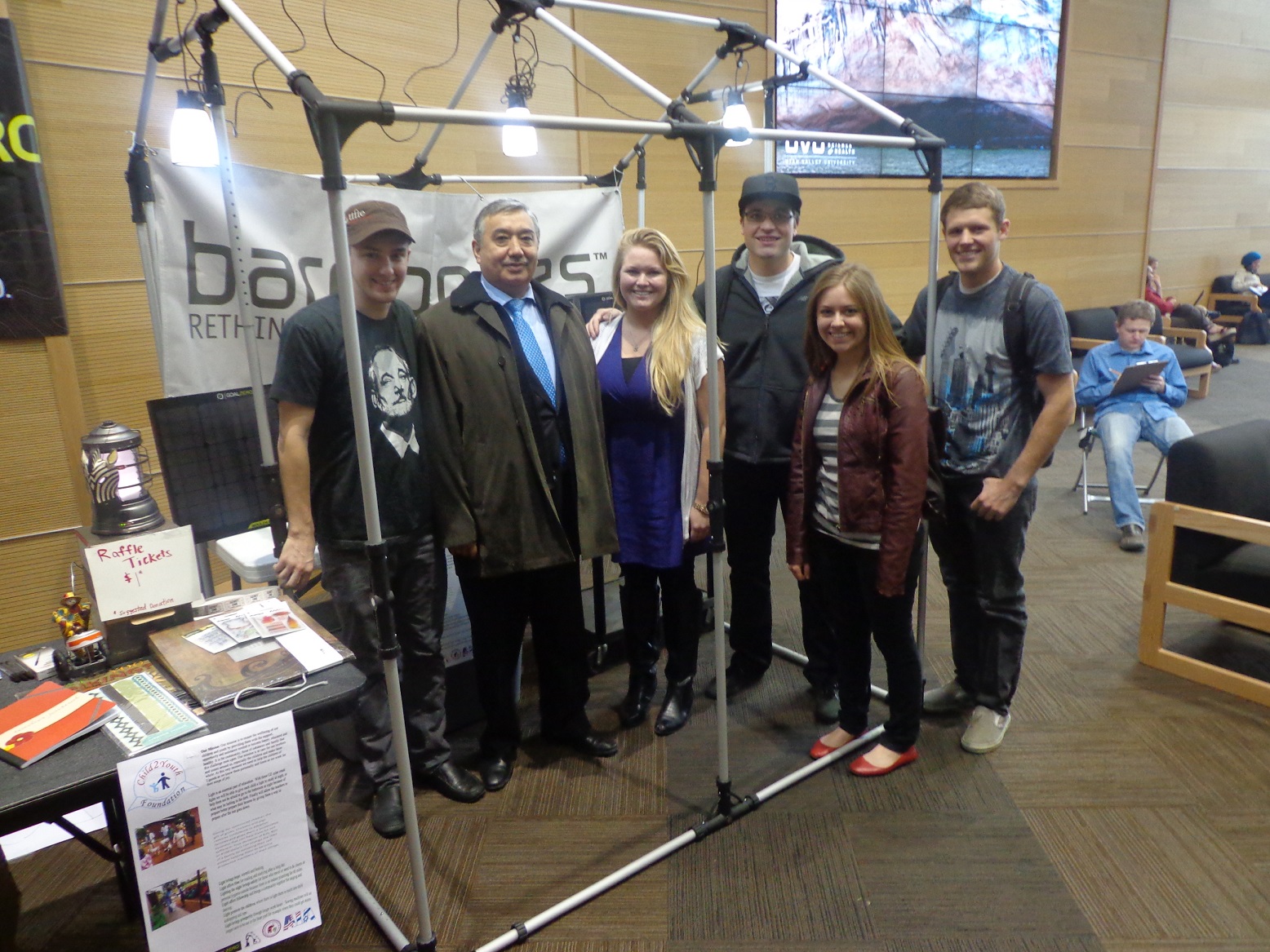
The UIMF every semester has dedicated itself to fundraising for organizations that promote and live sustainability. This semester was no different. While usually we fundraiser solely for the Dumi Project for TIFIE in the DR Congo this semester we worked with TIFIE and GoalZero to find a partner in Ghana called Empower Playgrounds International (EPI).

UVU Students at the Fundraising Booth on campus
EPI has decided to move to a larger scale power solution for the communities in Ghana with solar power. The community buys into the program and makes monthly payments overtime. While this may seem more expensive it, in fact, is actually very affordable and usually equals out to what the residents usually pay in cell recharging fees, batteries, and kerosene every month. These are the usual sources of power for them and can be quite costly depending on the size of their family.

Permanent Representative of the Kyrgyz Republic to the United Nations, Ambassador Talaibek Kydyrov (second from the left) with UIMF members during fundraiser
With the solar power and rechargeable battery packs they receive every month they will be able to light their homes, charge their cell phones, and other small electronic devices. After 12-18 months depending on the size of the system they are purchasing they completely own the system and are able to start saving a lot of money.

An example of some of the Goal Zero equipment sold for the fundraiser
The UIMF raised enough money to make the down payment for 10 homes to be outfitted with solar power. For these families to have a form of reliable, clean energy means less sickness from burning coal or kerosene. It means a way to have another source of income because they can now charge cell phones of local community members and it is a way to save money and lift themselves out of poverty. The UIMF continues to be able to show to the Utah community that a sustainable charitable model is what is needed in developing communities. When this model is used the community is trained on how to take care of the system after the organization is gone, is able to take ownership of the system and helps lift the community out of poverty by giving them a way to make and save money. In the end it teaches independence to families and individuals through enterprise.
Brandon Merrill, VP, UIMF

